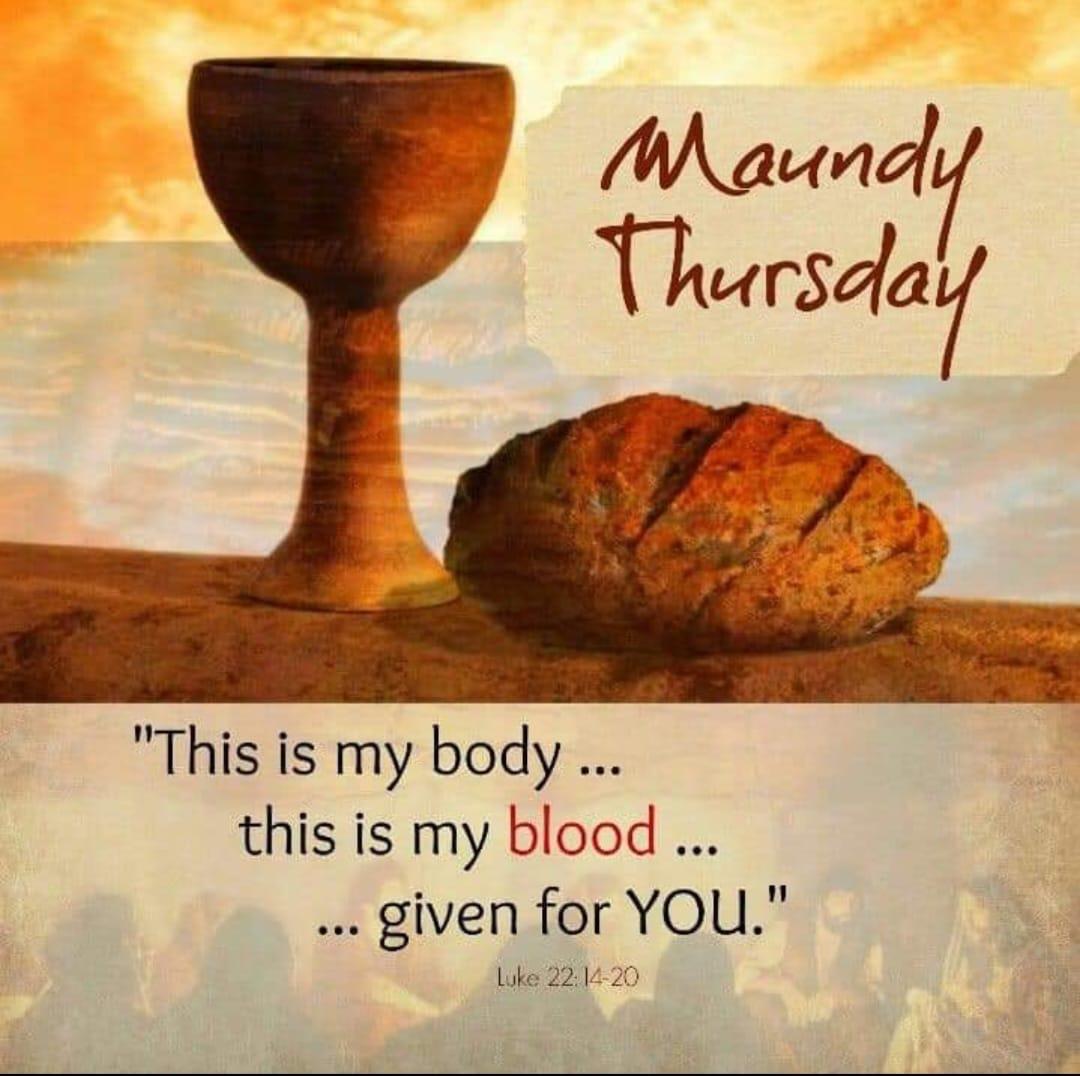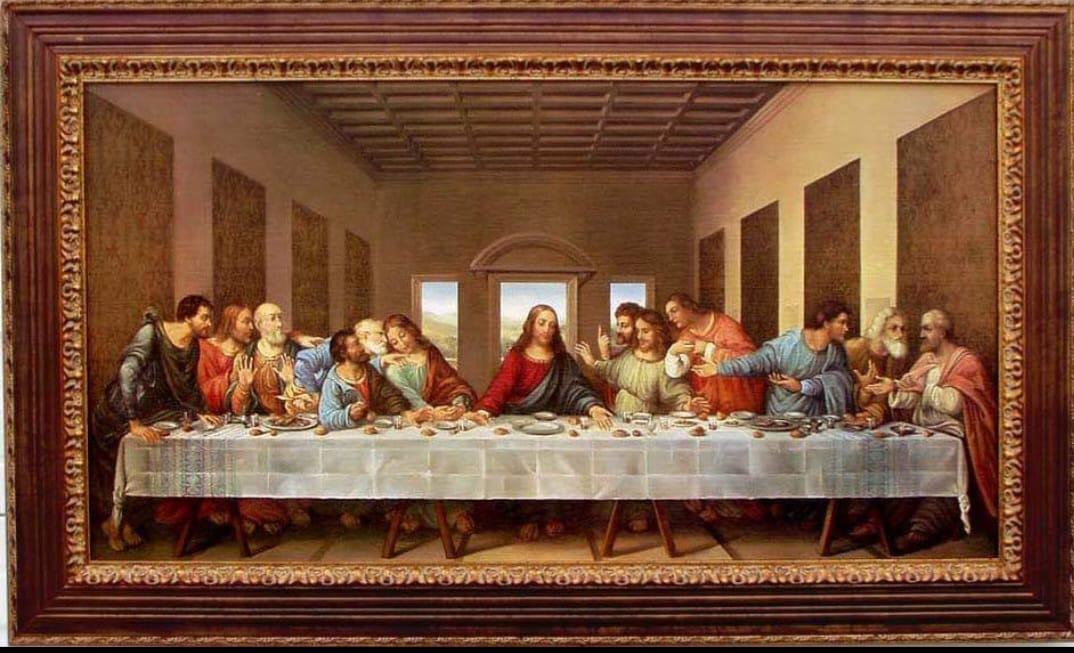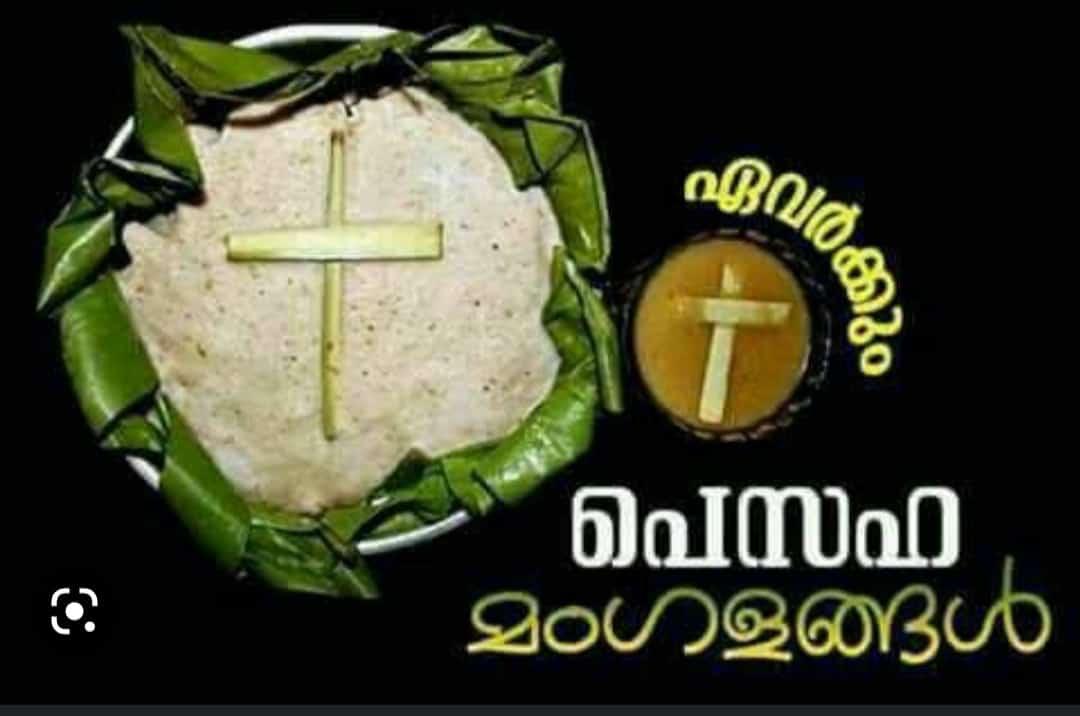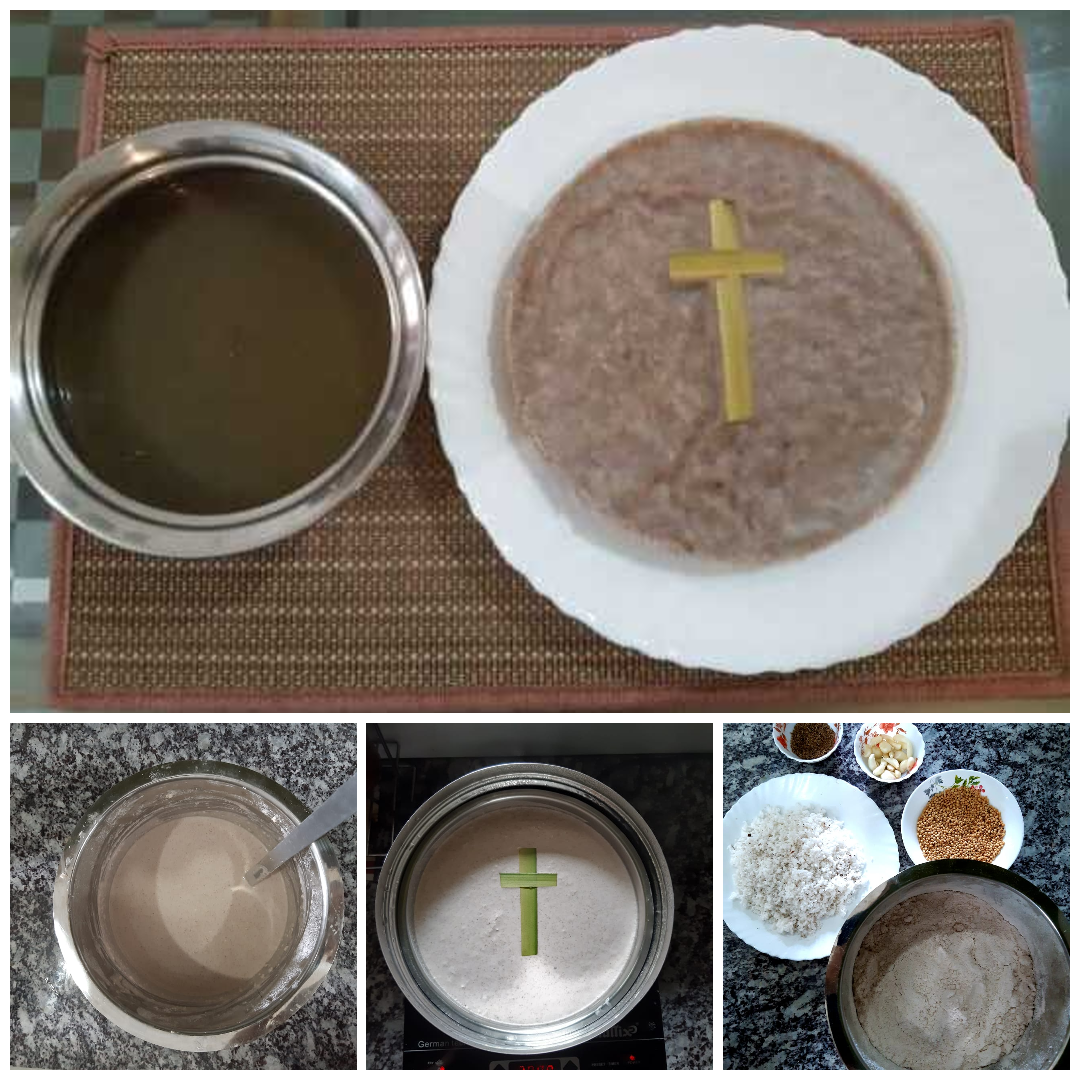The kerala Pesaha appam on Maundy Thursday!
While most of us have certainly heard about the Christian festivals of Good Friday and Easter, Maundy Thursday is a day that commemorates Jesus Christ's Last Supper with his disciples. It is observed to emphasize Jesus Christ’s institution of the Eucharist during the Last Supper.
Believers observe Maundy Thursday with pensive piety, as the solemn mood of the Easter Triduum, three days prior to Easter, sets in.

Priests and Bishops led the ceremonies, which included the traditional ‘washing of the feet‘ of 12 persons, representing the twelve Apostles of Jesus.
The washing and kissing of the feet are symbolic gestures, signifying the spirit of humility, selflessness and service to others.

Maundy Thursday and following Good Friday are observed as statewide public holidays in Kerala, given the high number of Syrian Christians in the state.
The bread that Jesus Christ distributed to his disciples saying `This is part of my body’ has become the staple food for Christians on Holy Thursday.

In Kerala, the Pesaha Appam bread is eaten to symbolize the bread that Jesus and his disciples ate at the Last Supper. The tradition of consuming Pesaha appam or Indariyappam is customary after a special longer Holy Mass/ Qurbana, which is conducted at midnight till morning in churches of Saint Thomas Christians.
On the evening before Good Friday, the Pesaha bread is made at home. It is made with unleavened flour along with a sweet drink 'Pesaha Paal' made up of coconut milk and jaggery.
The unleavened bread is prepared and served in a traditional manner. The house and the surroundings are cleaned before the preparations begin. The one who cooks it chants prayers as they prepare the dough. Freshly ground rice flour is the main ingredient of the appam. The one-third portion of the soaked urad dal which is ground is added.

The dough is then mixed by adding cumin, garlic, grated coconut and salt. This thick dense batter is then spread on a piece of plantain leaf and secured with a plantain fibre. A cross made of palm leaf is placed in the centre of the appam and special prayers are offered while placing the cross on top of the batter before it is steamed.
The cross is blessed earlier by a priest on Oshana Sunday. When it's dipped into the sweet paal the unleavened Pesaha bread assumes a sweet-savoury contrast.
While the appam is steamed in some places, it is baked in other areas. On the Pesaha night, the bread is steamed in a new manchatti vessel, immediately after rice flour is mixed with water it is pierced many times with the handle of the spoon to let out the steam so that the bread doesn't rise.
The head of the family leads the dinner service as all the Nasrani family members gather to read the Book of Exodus and pray. Then the head of the family breaks the bread without letting even a tiny piece fall on the floor distributing it to every member with Paal drink.
This Passover ritual observed by the Nasranis, or Syrian Christians has striking parallels to the Jewish Passover Seder that is celebrated in the memory of the Israelites’ exodus from Egypt, after 400 years of slavery under the Pharaohs.
In fact, the only Christian community in the world that maintains this Seder-esque ceremony is the Syrian, or Mar Thoma, Christians.
The Saint Thomas Christians, also called Syrian Christians of India, Marthoma Suriyani Nasrani are an ethno-religious community of Indian Christians in the Malabar region of Kerala who, for the most part, employ the Eastern and Western liturgical rites of Syriac Christianity. They trace their origins to the evangelistic activity of Thomas the Apostle in the 1st century. The Saint Thomas Christians had been historically a part of the hierarchy of the Church of the East but are now divided into several different Eastern Catholic, Oriental Orthodox, Protestant, and independent bodies, each with their own liturgies and traditions.
Christians of Kerala call it Pesaha Vyazham, which could take the literal translation to Passover Thursday. And just like the Jewish Seder table, the dining table takes center stage on the night of the Pesaha and a toast is raised to the holy Thursday.
Comments (8)







